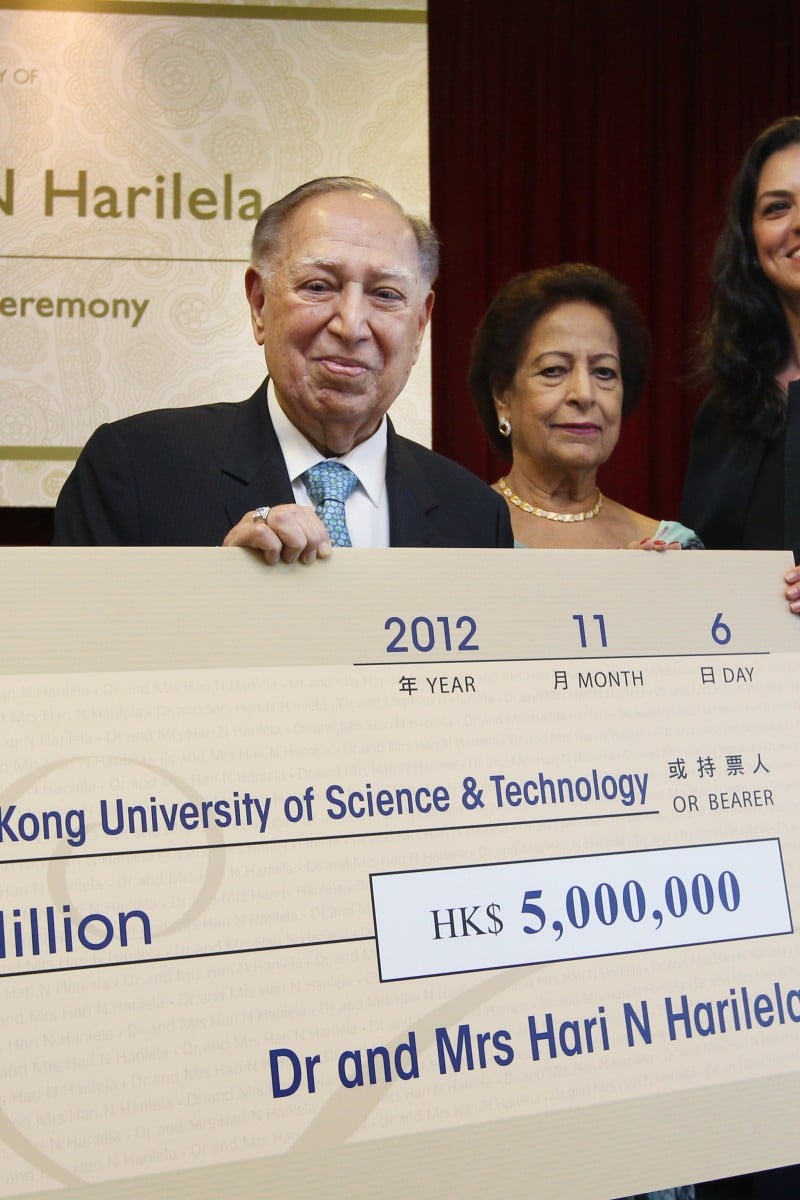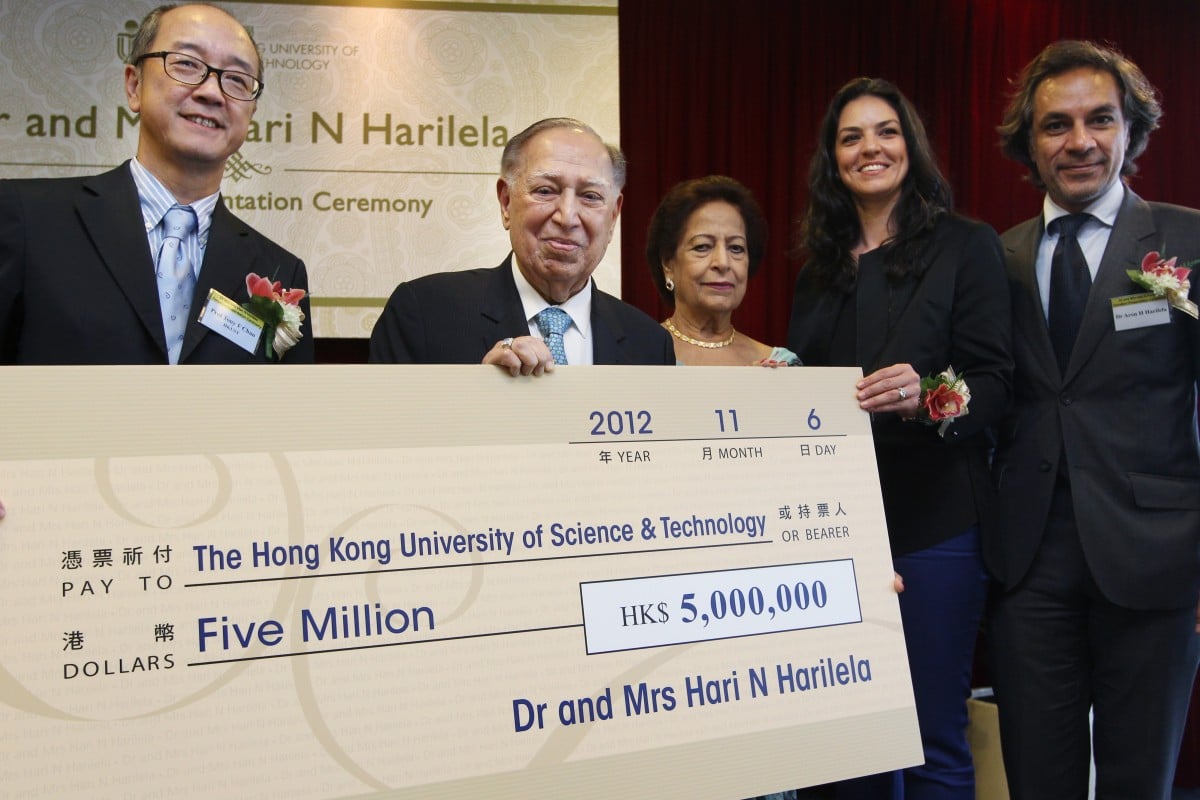
Hong Kong stories: How the late Hari Harilela built his empire from scratch and gave back to society
The philanthropist built his career and legacy in the city and dedicated his life to helping others
 President of Hong Kong University of Science and Technology Professor Tony Chan Fan-cheong receives a HK$5 million donation from Hari Harilela and his wife Padma Harilela at the campus in Clear Water Bay.
President of Hong Kong University of Science and Technology Professor Tony Chan Fan-cheong receives a HK$5 million donation from Hari Harilela and his wife Padma Harilela at the campus in Clear Water Bay.The leafy, picturesque neighbourhood of Kowloon Tong is home to an array of old, colonial-style mansions. Devoid of eye-catching skyscrapers, its narrow lanes are a quiet haven compared to the bordering areas of Mong Kok and Kowloon City.
Nestled between the trees on Durham Road sits a strikingly massive mansion. Painted a deep emerald green, it boasts large arched windows and murals depicting Indian folktales at its entrance. The 25,000-square-foot complex is not just unique in its appearance, but also in its function. It is home to more than 90 members of the Harilela family: a large, extended Indian family who has called Hong Kong home for more than 80 years.
Hari Harilela, the family’s patriarch, was born in 1922 in Hyderabad, Sindh, in what was then India. (In 1947, after the Partition of India the province became a part of Pakistan.) He moved to Guangzhou (then known as Canton) in 1929, to join his father who had moved there some years earlier. His father owned an antiques shop, but the business didn’t do well.
In an interview with the South China Morning Post in 2013, Harilela talked about his rags-to-riches story. “My father couldn’t afford three dollars a month [for schooling],” he said. So Harilela left his school in Canton at the age of 10, and two years later the family moved to Hong Kong, in search of better business opportunities.
For a few years, they were hawkers in Central, trying to make ends meet. Struggling during the second world war when the city was occupied by Japanese troops, they eventually found success after opening a tailoring business. The business catered to the many British and US soldiers who passed through Hong Kong.
In 1959, the family diversified into real estate – in particular, the hotel business. Together with his brothers George and Peter, Harilela founded the Harilela Group.
The group’s hotel portfolio today includes the Holiday Inn Golden Mile and the Intercontinental Grand Stanford, both in Kowloon, as well as several others across Asia, two in Canada and one in London.
In addition to being a prominent businessman, Harilela was highly respected among the local community. He advised the Hong Kong government on numerous ethnic minority issues and maintained a close friendship with former chief executives Tung Chee-hwa and Donald Tsang Yam-kuen.
In 2009, he became the first ethnic minority figure to be awarded the city’s top honour – the Grand Bauhinia medal. Harilela was also a member of the Hong Kong Chamber of Commerce, the most influential business organisation in the territory. From 1996 to 2006, he was on the Hong Kong SAR Election Committee, and was one of the people responsible for electing the city’s chief executive.
Harilela’s philanthropy benefited many Hongkongers. He donated HK$5 million each to Baptist University, and the Hong Kong University of Science and Technology. Both institutes boast lecture theatres in the family’s name.
“Charity begins at home,” he said in an interview with SCMP a year before his death. “I made my home here, so I will give all the charity to the people of Hong Kong.”
Harilela died at his home in December 2014 aged 92. His only son out of six children, Aron, took over his role in the business and currently serves as the chairman of the group.
“[My father] was generous, humble with an open spirit and a forward mind,” Aron told the SCMP in 2014. “He always encouraged me to aspire in all things in life – in learning, in family, in business, and also as importantly, with the friends in one’s life.”
